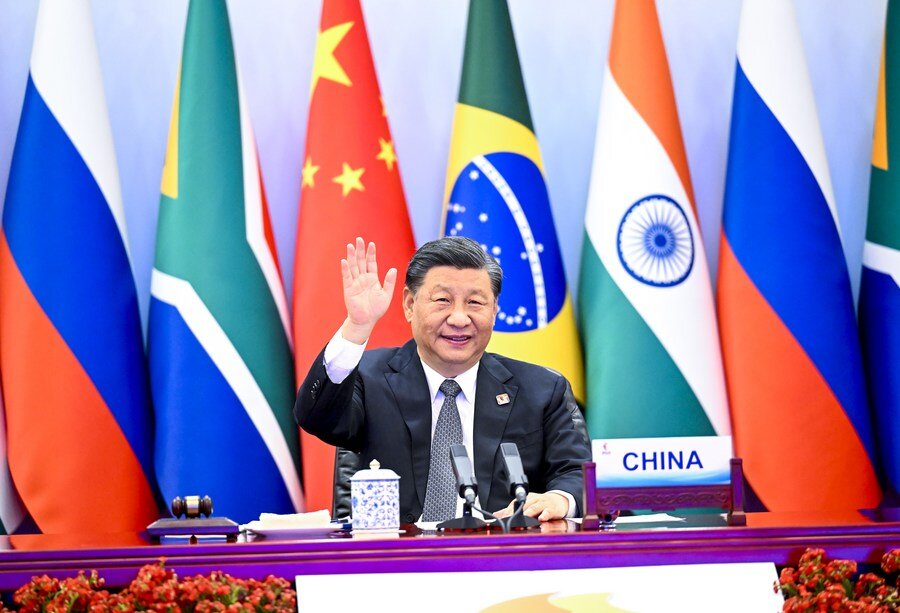BRICS and the Dawn of a New Era

As world leaders prepare to gather at the 2024 BRICS Summit in Kazan, Russia, the expanded BRICS is poised to redefine the global landscape.
With official new members Egypt, Ethiopia, Iran, UAE, and invited member Saudi Arabia - the bloc now represents nearly 40% of global oil production, a quarter of the world’s GDP, and two-fifths of global trade. This growth marks a decisive step in BRICS' ambition to amplify the voice of the Global South, and counter-balance Western economic dominance.
The expanded membership unites countries facing similar challenges. Iran’s participation is particularly noteworthy, as it marks President Masoud Pezeshkian’s first visit to Russia since taking office in July. Like Russia, Iran is under sweeping sanctions targeting its energy, banking, and aviation sectors. Tehran aims to use its BRICS role to bolster energy trade and economic cooperation while navigating western sanctions.
Analysts suggest the bloc could realign energy dynamics between producers and consumers, especially in Asia, creating fresh opportunities for downstream investment and economic resilience.
“The economic sanctions imposed by Europe and the United States on Russia, along with the disruption of the Nord Stream 2 natural gas pipeline, have upset the balance of supply and demand in international energy markets,” says Professor Liu Jisen, Executive President of the Institute for African Studies at Guangdong University of Foreign Studies. He believes BRICS could establish a new, stable global energy framework, providing an alternative that mitigates Western containment efforts against certain member states.
A New Economic and Financial Paradigm?
For official members and the nearly 30 countries that have applied to join, BRICS is seen as a beacon of multilateralism. Its efforts in reforming the global financial and economic architecture cannot be overlooked. By late 2023, the BRICS-led New Development Bank (NDB) had allocated nearly US$35 billion to over 100 projects, focusing on infrastructure and sustainability. This development finance, increasingly denominated in local currencies like the Indian Rupee and Chinese Yuan, is offering a much-needed alternative to Western-led institutions such as the World Bank and the International Monetary Fund. It is also laying the groundwork for a shift in the global currency system.
BRICS nations are already working on creating their own blockchain-based payment and settlement system called BRICS Bridge, seen as a “politically neutral and technologically advanced” alternative to SWIFT. There are also ongoing discussions about a BRICS-wide currency, potentially pegged to gold and a basket of BRICS members' national currencies. However, it could take until 2030 for these ideas to be fully implemented.
China’s Influence and Vision for a Shared Future
As the bloc’s largest economy and strategic anchor, China plays a pivotal role in shaping the future of BRICS. A recent report by the International Energy Agency (IEA) suggests China is likely to contribute almost 60 percent of all renewable capacity installed worldwide between now and 2030. The country is demonstrating how climate goals will not take a back seat to economic expansion – a new criticism regarding BRICS members’ emissions-intensive growth. Beijing’s expertise in sustainable technologies, digital infrastructure, and investment capital aligns well with the developmental needs of its BRICS partners.
But China’s impact goes beyond economic ties. Its vision of “a shared future for humanity” offers a philosophical foundation for BRICS’ growth. Critics have argued that the bloc’s diversity - spanning different political systems, economic models, and cultural backgrounds - could make it less cohesive or effective. However, this diversity might also be its strength, as it embodies a core United Nations principle: countries with varying perspectives and development models can - and should- work together for common goals.
The real test for BRICS will be whether it can transform this diversity into a united platform that advances its members' interests. If successful, BRICS could establish itself as a powerful alternative for global governance, providing emerging economies with a genuine voice in shaping international rules.
*The author is a reporter for China Global Television Network (CGTN)
